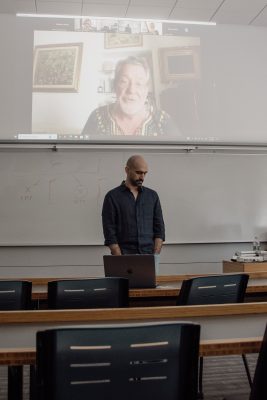The 13th Generative Linguistics in the Old World in Asia (GLOW in Asia XIII) Online Special will be held online August 4-7, 2022, hosted by the Chinese University of Hong Kong. UConn linguistics will be well represented at the conference with a plenary talk by:
- Željko Bošković. On wh and subject positions and the EPP
… main session talks by:
- Norio Nasu, Takayuki Akimoto, Koji Shimamura (PhD 2018, now at Kanazawa Gakuin University and Kobe City University of Foreign Studies), and Yusuke Yoda. The Categorial Status of Embedded Questions in Japanese
- Shuki Otani and Yuta Tatsumi (PhD 2021, now at Meikai University). Light nouns and extraction from null clausal arguments
- Shengyun Gu. H2 spread in Shanghai Sign Language: mapping syntax to phonology
- Penelope Daniel. Deriving person-based differential argument marking in Ik
- Myung-Kwan Park (PhD 1994, now at Dongguk University). The Placement of WHY and Intervention & Superiority
… and flash talks by:
- Marcin Dadan (PhD 2019, now at University of Iowa). Labelers and anti-labelers: Clitics and Second Position
- Hiromune Oda (PhD 2021, now at University of Tokyo). Large-scale Pied-piping in the Labeling Theory and Conditions on Weak Heads
- Yusuke Yagi. Definite Description for Tenses: More Analogy Between Pronouns and Tenses
- Akihiko Arano. On the locality of A-scrambling in Japanese
- Tarcisio Dias. Hyper-raising and the subject position in Brazilian Portuguese
The conference will also include a one day Workshop on Workspace, MERGE, and Labelling (August 7), with a keynote address by:
- Mamoru Saito (UConn and Notre Dame Seishin University). Two Notes on the Unification of NP-movement and Control by Form Copy
… and a talk by:
- Adrian Stegovec. The third way: Optional object reordering as ambiguous labeling resolution


